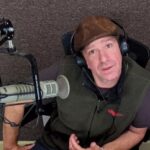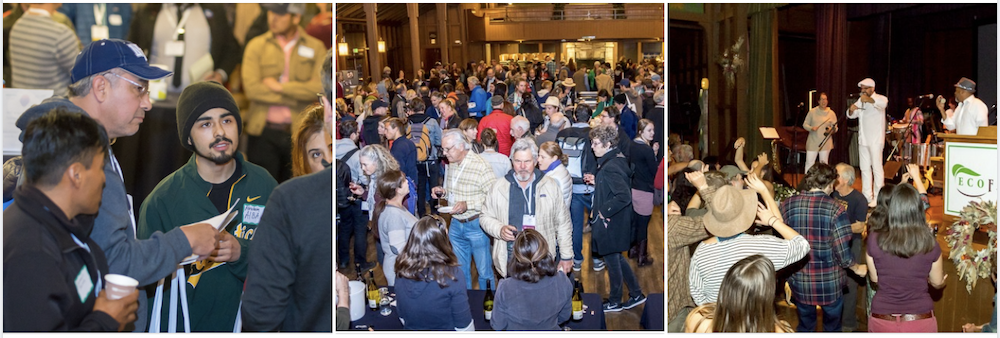
January 10, 2023 – EcoFarm, returning in person to Pacific Grove Jan. 18-21, is not an athletic event.
Nevertheless, every year I’ve visited Asilomar Beach & Conference Grounds to cover it, I end up wind sprinting across its forested meadows.
That becomes inevitable because two concurrent sessions will fuel enough FOMO that I want to catch half of each.
That inspired me to challenge EcoFarm Executive Director Andy Fisher with an impossible task.
I asked him to name five—and only five—workshops he would attend if he was limited to that amount. (As a grace, I am allowing him to soak up all the inspiring keynotes he wants.)
What he selected speaks to the breadth of the conference, which he thinks—along with the sheer beauty of the setting—is something that surprises new attendees as much as anything else.
“It’s a farm conference, but there’s a huge amount of things to opt into that aren’t so specific to things like soil health or pest management,” he says. “That diversity extends to participants. It’s not just white hippie farmers any more.”
Typically EcoFarm entertains a theme for each gathering. This year they intentionally avoided that, but some motifs emerge organically enough, including regenerative farming and climate change adaptations.
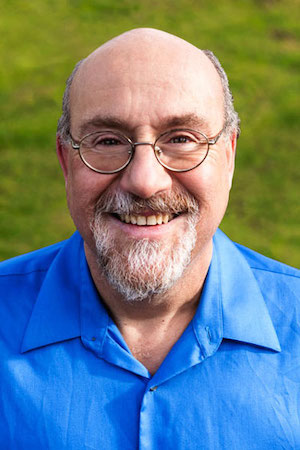
Alongside new workshops and the cutting-edge keynotes, traditions abide, including a long-standing panel that checks in with a group of thriving organic farmers. They’ll again remind the audience that even as people understand organic more than ever, conventional still dominates, but real-deal organic practices prove best.
“It’s all about integrity,” Fisher says. “Organic is a big marketing niche for so many companies, and consumers understand that—just because something is organic doesn’t mean it’s sustainable. People want to know their farmers and where it came from, at a scale where they can have those personal connections.”
One other update: The archives of 2023 talks and workshops will be available to the public with a new archive debuting in spring. In the meantime, for takeaways like the most important insight from 2022’s conference, you can attend or return to Edible Monterey Bay’s coverage.
For tickets and more information on all the other workshops and keynote presentations, including Paul Hawken, visit EcoFarm’s website.
Here are Fisher’s five picks, along with a note on why he selected them, followed by my five.
1. Growing Figs.
The teaser from EcoFarm: Figs are a great crop by themselves or as part of a diversified orchard. This session will have a larger grower and a small diversified one to discuss the fascinating world of fig varieties, gopher control, propagation, pollination (or not), general care, and marketing for a most noble of fruits.
Fisher’s reason: “I am obsessed with finding the perfect fig. I have a deep knowledge of the fig trees in my neighborhood, when they ripen, and which ones taste best. I have a negronne fig tree in my backyard, and would have more if I had space. While this workshop is tailored toward commercial production, I fig-ure I can learn something about producing better and more bountiful crops of my favorite fruit.”
2. Farm Bill Town Hall
The teaser: “Policy is on the plate in 2023 and the Farm Bill is the main course,” EcoFarm’s preview reads. The estimated budget: $1,295 trillion over 10 years, which can be used to build safe, healthy, just, and ecologically sustainable farms and surrounding communities.
His reason: “I have spent almost three decades advocating on federal food policy, through the farm bill. I’m a policy geek. What can I say?”
3.The National Right to Food
The teaser: Some 40 million Americans are food insecure and small farmers struggle to make ends meet. Both parties suffer from conditions wherein control over arable lands, seeds and inputs are consolidated and racialized, and production models exploit workers. A new network aims to facilitate state-to-state learning among organizers towards a national movement for the right to food.
His reason: “I am moderating this workshop. I invited the speakers. I wrote about the need to establish a right to food in Big Hunger, and advise these speakers on this area. I am very passionate about California pursuing the right to food as a legal framework.”
4. To Till or Not to Till: that is the Question
The teaser: For four years, a group of experienced California organic farmers has been trying to reduce soil disturbance. What they’ve learned provides crucial context for coming harvests.
His reason: “I am not a farmer, but work with farmers and promote sustainable agriculture. This workshop is led by some of the best organic farmers in the state, and the topic is on everyone’s minds these days as a tool to mitigate the climate change impacts of agriculture. This is one that I need to learn more about.”
5. SGMA, Drought and Family Farms
The teaser: SGMA = the Sustainable Groundwater Management Act for small, socially disadvantaged, and even mid-sized family farmers. This workshop dives into water table strategies in a deep way.
His reason: “Water is on everyone’s minds these days. I need to learn more about the ins and outs of SGMA and groundwater management.”
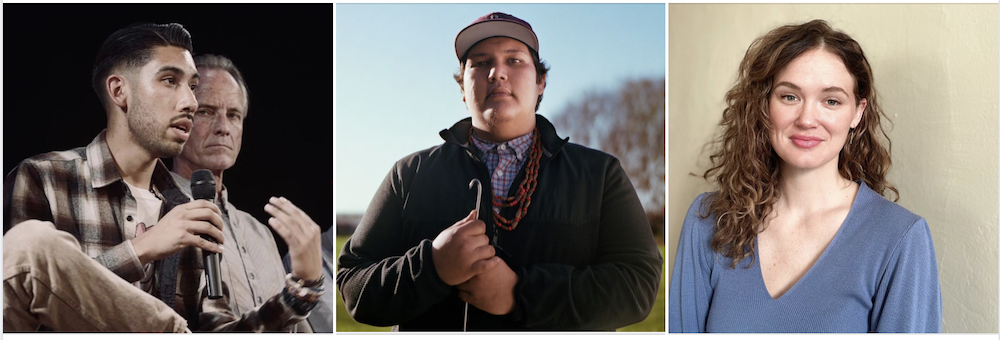
OK, to review, there’s a reason Fisher is the executive director of the longest-running and most-robust event of its kind on the planet. That’s an insightful list he dropped on Edible. Put differently, it’s not a contest, but he just out-harvested me.
But it’s a testament to how much rich content there is to absorb that we didn’t overlap. Here are five I was prioritizing before I peeped his list:
1. Uniting the World Organic Movement
The teaser from EcoFarm: The world movement called organic farming is decades older than USDA certification…yet the USDA is redefining “organic” by allowing certification of practices quite different from these principles. What are the implications for organic farms following the founding principles of organic agriculture?
The author’s reason: One conference strength is contextualizing sustainable practices within the biggest picture.
2. Botanical Oils for Organic Pest & Disease Control
The teaser: The number of products available to organic growers that are made from plant-based oils has been exploding in the last few years—from cinnamon oil to sesame oil. This session covers the many advantages of choosing these safe and low-impact products.
The reason: I always reserve at least one session for something I can apply in my garden, and reader-growers can too. This qualifies in full. #aphidsmustdie
3. Food is Medicine: Farm and Clinic Perspectives from Rural and Urban
The teaser: Awareness of the relationships between food and health is not new, but healthcare is (finally?) investing in healthy food as treatment. That presents new market opportunities for small-scale producers and explores how healthcare systems are integrating diet.
The reason: I first learned of the food-as-medicine advocacy at EcoFarm, and it led to reporting on regional food-as-medicine efforts that have in turn given Edible and me the opportunity to serve on the Monterey County Food Coalition and aid Blue Zones Monterey County in making healthy choices easy.
4. Farming through Wildfire Season: A Collective (and Practical) Discussion Group
The teaser: The intensity of wildfires is rapidly increasing, and that inspires new processes for resilience and a new Farming through Wildfire Season Workbook.
The reason: Much like Fisher’s thoughts on drought—yup: arid conditions and fire are related—I’d love to know more about a menacing, and increasingly intense, reality of life amid climate change.
5. Beneficial Birds and the Native Plants that they Prefer
The teaser: Wild Farm Alliance’s Bird Habitat Assessment and Native Plant guide informs how to look at the farm through eyes from above. That includes their food, water, cover and nesting, with an emphasis on inviting indigenous foliage, 160 common native plants all told.
The reason: Full disclosure: I love birds, and see dozens of species love up on my yard. I love small healthy farms. And I love EcoFarm. Here’s hoping we’ll sprint by one another, and have time to catch up at the expo.
More at ecofarm.org.
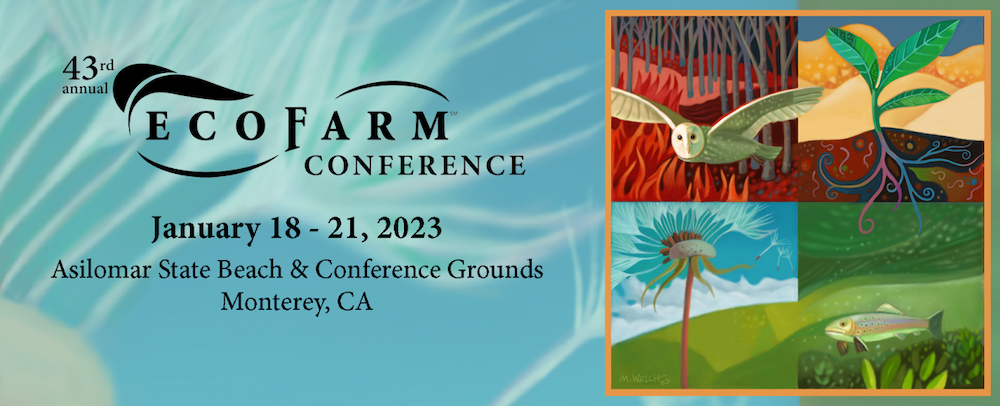
About the author
Mark C. Anderson, Edible Monterey Bay's managing editor, appears on "Friday Found Treasures" via KRML 94.7 every week, a little after 12pm noon. Reach him via mark@ediblemontereybay.com.
- Mark C. Andersonhttps://www.ediblemontereybay.com/author/markcanderson/
- Mark C. Andersonhttps://www.ediblemontereybay.com/author/markcanderson/
- Mark C. Andersonhttps://www.ediblemontereybay.com/author/markcanderson/
- Mark C. Andersonhttps://www.ediblemontereybay.com/author/markcanderson/


